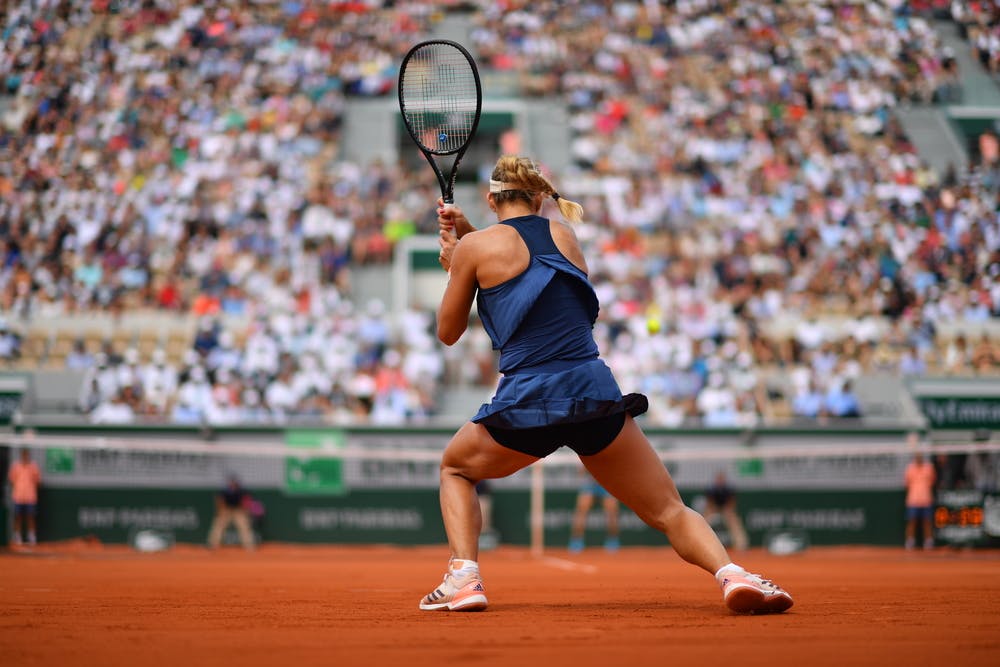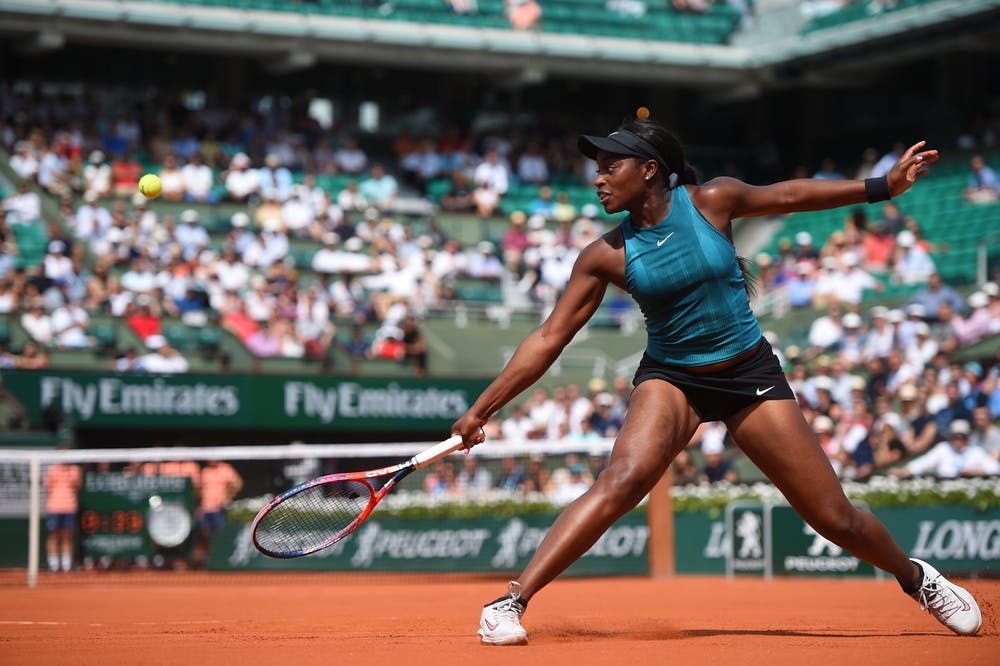The business end of Roland-Garros is upon us and the women’s quarter-final line-up is a treat.
And among them is a trio of stars who claim clay is not their preferred surface, and yet who continue to post mighty performances in Paris.
Keys, Kerber, Stephens thriving on a surface and at a tournament that has historically never been their best.

The business end of Roland-Garros is upon us and the women’s quarter-final line-up is a treat.
And among them is a trio of stars who claim clay is not their preferred surface, and yet who continue to post mighty performances in Paris.
Angelique Kerber, Sloane Stephens and Madison Keys are not in unchartered territory. They have won big titles. Two of them - Kerber and Stephens - are Grand Slam champions. Along with Keys, a major finalist, they are used to the business end of tournaments.
We spoke to three-time Roland-Garros winner Arantxa Sanchez Vicario about this trio, who are incrementally building a case to be crowned champion on Saturday.
“First of all they have been playing great tennis to get there across the matches. Also, maybe because they aren’t the favourites, it helps, that they are able to play loose and with little pressure,” Sanchez Vicario told rolandgarros.com.
“I’m not surprised they have gone this far, they can adapt, they have experience. Obviously Kerber and Stephens know what is required to win Grand Slams, with Madison also making a final (US Open 2017).”
All three possess a powerful artillery, but Sanchez Vicario, who ruled at Roland-Garros in 1989, 1994 and 1998, believes this talented triumvirate must have accepted the mental task in tackling the clay.
“It’s completely different, the matches here are very mental. Patience on the clay is the most important thing,” revealed the former world No.1.
"If you can keep working on playing with patience, then it is easier to put the whole game together; mentally, physically and technically. If you battle with that then you are up against it because the points are slower, longer. If you manage to put this together it can give you a lot of confidence on the clay. I think Kerber realised this, she’s won tournaments on clay and keeps improving, so I’m sure she’ll have more success on the clay.”
Keys, into her first Roland-Garros quarter-final, maintains that she's not the biggest fan of playing on the red dirt.
“I like it a little bit more now,” the American said with a smile after booking a last-eight test against Yulia Putintseva, insisting that building a platform of patience on clay has been an arduous process.
“That's something that I have had to get better at in all aspects of my life, especially on the tennis court. So I think it's become more consistently better for me and something that I'm always going to have to work on, but it's definitely something that's helped me become more consistent.
“I think even though it's still not my favourite surface, I definitely feel more comfortable on it. I feel like this year especially I have been finding the balance of being a little bit more patient but also playing my game, whereas before I feel like I would go too far one way. That's the biggest thing of just remembering how I like to play tennis but just maybe adding a couple more shots to each rally.”
Compatriot Stephens posted four successive fourth-round appearances in Paris from 2012 to 2015 and enjoys the unique qualities of competing on the surface.
“I have always played well here. I really have never had a bad year here. I have lost to some really great players. I don't think that I'm such a great clay-court player. I think I just enjoy playing on it,” Stephens explained after a 6-2 6-0 demolition of 25th seed Anett Kontaveit.
“I think it's a cool surface. It's different from all the other surfaces we play on all year long. I'm no Rafa (Nadal). I just try to take it day by day and enjoy myself.”
Kerber, meanwhile, has soared through four rounds thus far without dropping a set, returning to the quarter-finals in Paris for the first time since 2012.
“I think it's more in my mind, I think I'm trying really going out there, trying to enjoy playing on clay, so I think I’ve changed a lot since 2012,” said the two-time major champion. “Because the last years I was always too fast, I was always overpowering my tennis, and now I'm trying to play more relaxed and trying to moving better and just looking from match to match.”
The 12th seed claims that developing an understanding of the demands on clay has wider-reaching benefits. “I think that clay can help me also being better on the hard court, on grass. I'm trying always to improving my game, improving me as a player. It's working so far,” she said.
Clearly Sanchez Vicario has nailed the point; these players all have the talent to succeed on clay yet they are embracing the idiosyncrasies of the surface, something that could help them all the way to the finale.
